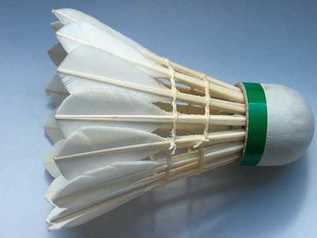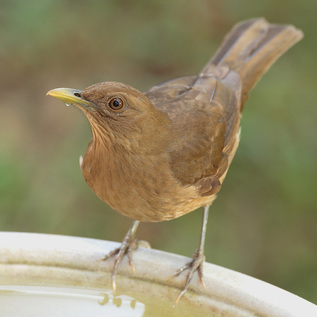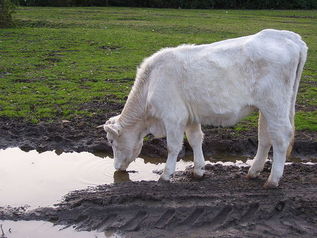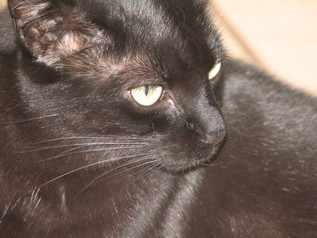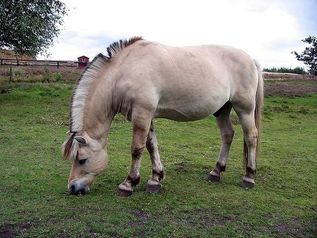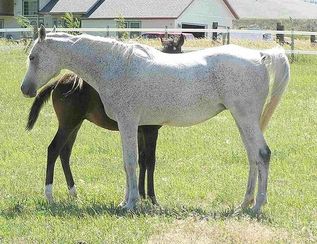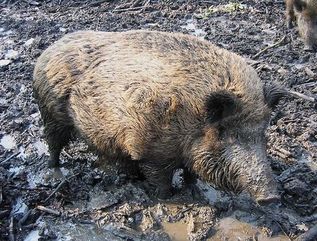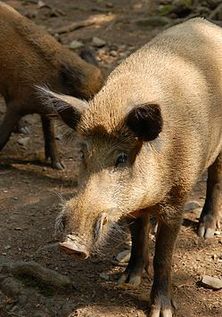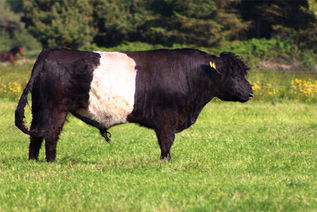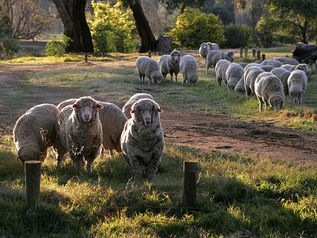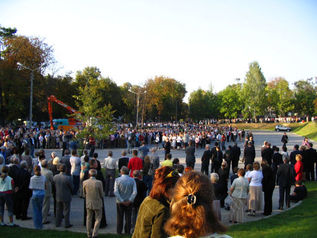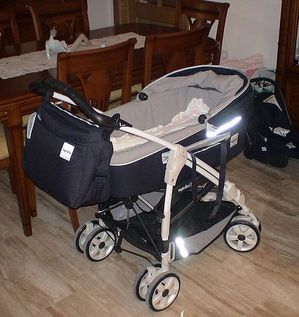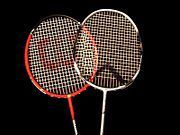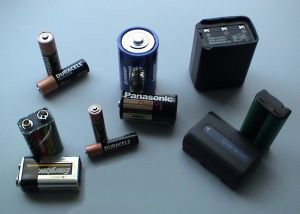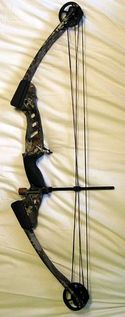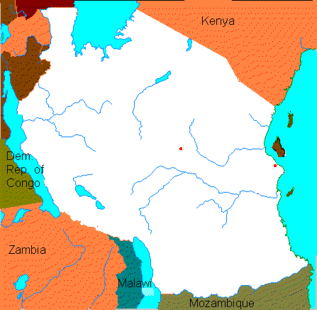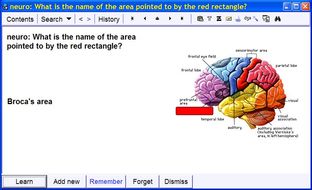Edited, memorised or added to reading queue
on 13-Sep-2015 (Sun)
Do you want BuboFlash to help you learning these things? Click here to log in or create user.
Flashcard 150908001
| status | not learned | measured difficulty | 37% [default] | last interval [days] | |||
|---|---|---|---|---|---|---|---|
| repetition number in this series | 0 | memorised on | scheduled repetition | ||||
| scheduled repetition interval | last repetition or drill |
Flashcard 150908396
| status | not learned | measured difficulty | 37% [default] | last interval [days] | |||
|---|---|---|---|---|---|---|---|
| repetition number in this series | 0 | memorised on | scheduled repetition | ||||
| scheduled repetition interval | last repetition or drill |
Flashcard 150908397
| status | not learned | measured difficulty | 37% [default] | last interval [days] | |||
|---|---|---|---|---|---|---|---|
| repetition number in this series | 0 | memorised on | scheduled repetition | ||||
| scheduled repetition interval | last repetition or drill |
Flashcard 150908403
| status | not learned | measured difficulty | 37% [default] | last interval [days] | |||
|---|---|---|---|---|---|---|---|
| repetition number in this series | 0 | memorised on | scheduled repetition | ||||
| scheduled repetition interval | last repetition or drill |
Flashcard 150909437
| status | not learned | measured difficulty | 37% [default] | last interval [days] | |||
|---|---|---|---|---|---|---|---|
| repetition number in this series | 0 | memorised on | scheduled repetition | ||||
| scheduled repetition interval | last repetition or drill |
Flashcard 150909439
| status | not learned | measured difficulty | 37% [default] | last interval [days] | |||
|---|---|---|---|---|---|---|---|
| repetition number in this series | 0 | memorised on | scheduled repetition | ||||
| scheduled repetition interval | last repetition or drill |
Flashcard 150909440
| status | not learned | measured difficulty | 37% [default] | last interval [days] | |||
|---|---|---|---|---|---|---|---|
| repetition number in this series | 0 | memorised on | scheduled repetition | ||||
| scheduled repetition interval | last repetition or drill |
Flashcard 150909447
| status | not learned | measured difficulty | 37% [default] | last interval [days] | |||
|---|---|---|---|---|---|---|---|
| repetition number in this series | 0 | memorised on | scheduled repetition | ||||
| scheduled repetition interval | last repetition or drill |
Flashcard 150909451
| status | not learned | measured difficulty | 37% [default] | last interval [days] | |||
|---|---|---|---|---|---|---|---|
| repetition number in this series | 0 | memorised on | scheduled repetition | ||||
| scheduled repetition interval | last repetition or drill |
Flashcard 150909452
| status | not learned | measured difficulty | 37% [default] | last interval [days] | |||
|---|---|---|---|---|---|---|---|
| repetition number in this series | 0 | memorised on | scheduled repetition | ||||
| scheduled repetition interval | last repetition or drill |
Flashcard 150909460
| status | not learned | measured difficulty | 37% [default] | last interval [days] | |||
|---|---|---|---|---|---|---|---|
| repetition number in this series | 0 | memorised on | scheduled repetition | ||||
| scheduled repetition interval | last repetition or drill |
Flashcard 150909461
| status | not learned | measured difficulty | 37% [default] | last interval [days] | |||
|---|---|---|---|---|---|---|---|
| repetition number in this series | 0 | memorised on | scheduled repetition | ||||
| scheduled repetition interval | last repetition or drill |
Flashcard 150909462
| status | not learned | measured difficulty | 37% [default] | last interval [days] | |||
|---|---|---|---|---|---|---|---|
| repetition number in this series | 0 | memorised on | scheduled repetition | ||||
| scheduled repetition interval | last repetition or drill |
Flashcard 150909463
| status | not learned | measured difficulty | 37% [default] | last interval [days] | |||
|---|---|---|---|---|---|---|---|
| repetition number in this series | 0 | memorised on | scheduled repetition | ||||
| scheduled repetition interval | last repetition or drill |
Flashcard 150909464
| status | not learned | measured difficulty | 37% [default] | last interval [days] | |||
|---|---|---|---|---|---|---|---|
| repetition number in this series | 0 | memorised on | scheduled repetition | ||||
| scheduled repetition interval | last repetition or drill |
Flashcard 150909465
| status | not learned | measured difficulty | 37% [default] | last interval [days] | |||
|---|---|---|---|---|---|---|---|
| repetition number in this series | 0 | memorised on | scheduled repetition | ||||
| scheduled repetition interval | last repetition or drill |
Flashcard 150909466
| status | not learned | measured difficulty | 37% [default] | last interval [days] | |||
|---|---|---|---|---|---|---|---|
| repetition number in this series | 0 | memorised on | scheduled repetition | ||||
| scheduled repetition interval | last repetition or drill |
Flashcard 150909470
| status | not learned | measured difficulty | 37% [default] | last interval [days] | |||
|---|---|---|---|---|---|---|---|
| repetition number in this series | 0 | memorised on | scheduled repetition | ||||
| scheduled repetition interval | last repetition or drill |
Flashcard 150909473
| status | not learned | measured difficulty | 37% [default] | last interval [days] | |||
|---|---|---|---|---|---|---|---|
| repetition number in this series | 0 | memorised on | scheduled repetition | ||||
| scheduled repetition interval | last repetition or drill |
Flashcard 150909474
| status | not learned | measured difficulty | 37% [default] | last interval [days] | |||
|---|---|---|---|---|---|---|---|
| repetition number in this series | 0 | memorised on | scheduled repetition | ||||
| scheduled repetition interval | last repetition or drill |
Flashcard 150909475
| status | not learned | measured difficulty | 37% [default] | last interval [days] | |||
|---|---|---|---|---|---|---|---|
| repetition number in this series | 0 | memorised on | scheduled repetition | ||||
| scheduled repetition interval | last repetition or drill |
Flashcard 150909476
| status | not learned | measured difficulty | 37% [default] | last interval [days] | |||
|---|---|---|---|---|---|---|---|
| repetition number in this series | 0 | memorised on | scheduled repetition | ||||
| scheduled repetition interval | last repetition or drill |
Flashcard 150909477
| status | not learned | measured difficulty | 37% [default] | last interval [days] | |||
|---|---|---|---|---|---|---|---|
| repetition number in this series | 0 | memorised on | scheduled repetition | ||||
| scheduled repetition interval | last repetition or drill |
Flashcard 150909478
| status | not learned | measured difficulty | 37% [default] | last interval [days] | |||
|---|---|---|---|---|---|---|---|
| repetition number in this series | 0 | memorised on | scheduled repetition | ||||
| scheduled repetition interval | last repetition or drill |
Flashcard 150909479
| status | not learned | measured difficulty | 37% [default] | last interval [days] | |||
|---|---|---|---|---|---|---|---|
| repetition number in this series | 0 | memorised on | scheduled repetition | ||||
| scheduled repetition interval | last repetition or drill |
Flashcard 150909480
| status | not learned | measured difficulty | 37% [default] | last interval [days] | |||
|---|---|---|---|---|---|---|---|
| repetition number in this series | 0 | memorised on | scheduled repetition | ||||
| scheduled repetition interval | last repetition or drill |
Flashcard 150909483
| status | not learned | measured difficulty | 37% [default] | last interval [days] | |||
|---|---|---|---|---|---|---|---|
| repetition number in this series | 0 | memorised on | scheduled repetition | ||||
| scheduled repetition interval | last repetition or drill |
Flashcard 150909484
| status | not learned | measured difficulty | 37% [default] | last interval [days] | |||
|---|---|---|---|---|---|---|---|
| repetition number in this series | 0 | memorised on | scheduled repetition | ||||
| scheduled repetition interval | last repetition or drill |
Flashcard 150909487
| status | not learned | measured difficulty | 37% [default] | last interval [days] | |||
|---|---|---|---|---|---|---|---|
| repetition number in this series | 0 | memorised on | scheduled repetition | ||||
| scheduled repetition interval | last repetition or drill |
Flashcard 150909489
| status | not learned | measured difficulty | 37% [default] | last interval [days] | |||
|---|---|---|---|---|---|---|---|
| repetition number in this series | 0 | memorised on | scheduled repetition | ||||
| scheduled repetition interval | last repetition or drill |
Flashcard 150909490
| status | not learned | measured difficulty | 37% [default] | last interval [days] | |||
|---|---|---|---|---|---|---|---|
| repetition number in this series | 0 | memorised on | scheduled repetition | ||||
| scheduled repetition interval | last repetition or drill |
Flashcard 150909497
| status | not learned | measured difficulty | 37% [default] | last interval [days] | |||
|---|---|---|---|---|---|---|---|
| repetition number in this series | 0 | memorised on | scheduled repetition | ||||
| scheduled repetition interval | last repetition or drill |
Flashcard 150909499
| status | not learned | measured difficulty | 37% [default] | last interval [days] | |||
|---|---|---|---|---|---|---|---|
| repetition number in this series | 0 | memorised on | scheduled repetition | ||||
| scheduled repetition interval | last repetition or drill |
Flashcard 150909500
| status | not learned | measured difficulty | 37% [default] | last interval [days] | |||
|---|---|---|---|---|---|---|---|
| repetition number in this series | 0 | memorised on | scheduled repetition | ||||
| scheduled repetition interval | last repetition or drill |
Flashcard 150909502
| status | not learned | measured difficulty | 37% [default] | last interval [days] | |||
|---|---|---|---|---|---|---|---|
| repetition number in this series | 0 | memorised on | scheduled repetition | ||||
| scheduled repetition interval | last repetition or drill |
Flashcard 150909503
| status | not learned | measured difficulty | 37% [default] | last interval [days] | |||
|---|---|---|---|---|---|---|---|
| repetition number in this series | 0 | memorised on | scheduled repetition | ||||
| scheduled repetition interval | last repetition or drill |
Flashcard 150909511
| status | not learned | measured difficulty | 37% [default] | last interval [days] | |||
|---|---|---|---|---|---|---|---|
| repetition number in this series | 0 | memorised on | scheduled repetition | ||||
| scheduled repetition interval | last repetition or drill |
Flashcard 150909516
| status | not learned | measured difficulty | 37% [default] | last interval [days] | |||
|---|---|---|---|---|---|---|---|
| repetition number in this series | 0 | memorised on | scheduled repetition | ||||
| scheduled repetition interval | last repetition or drill |
Flashcard 150909519
| status | not learned | measured difficulty | 37% [default] | last interval [days] | |||
|---|---|---|---|---|---|---|---|
| repetition number in this series | 0 | memorised on | scheduled repetition | ||||
| scheduled repetition interval | last repetition or drill |
Flashcard 150909522
| status | not learned | measured difficulty | 37% [default] | last interval [days] | |||
|---|---|---|---|---|---|---|---|
| repetition number in this series | 0 | memorised on | scheduled repetition | ||||
| scheduled repetition interval | last repetition or drill |
Flashcard 150909524
| status | not learned | measured difficulty | 37% [default] | last interval [days] | |||
|---|---|---|---|---|---|---|---|
| repetition number in this series | 0 | memorised on | scheduled repetition | ||||
| scheduled repetition interval | last repetition or drill |
Flashcard 150909526
| status | not learned | measured difficulty | 37% [default] | last interval [days] | |||
|---|---|---|---|---|---|---|---|
| repetition number in this series | 0 | memorised on | scheduled repetition | ||||
| scheduled repetition interval | last repetition or drill |
Flashcard 150909532
| status | not learned | measured difficulty | 37% [default] | last interval [days] | |||
|---|---|---|---|---|---|---|---|
| repetition number in this series | 0 | memorised on | scheduled repetition | ||||
| scheduled repetition interval | last repetition or drill |
Flashcard 150909545
| status | not learned | measured difficulty | 37% [default] | last interval [days] | |||
|---|---|---|---|---|---|---|---|
| repetition number in this series | 0 | memorised on | scheduled repetition | ||||
| scheduled repetition interval | last repetition or drill |
Flashcard 150909547
| status | not learned | measured difficulty | 37% [default] | last interval [days] | |||
|---|---|---|---|---|---|---|---|
| repetition number in this series | 0 | memorised on | scheduled repetition | ||||
| scheduled repetition interval | last repetition or drill |
Flashcard 150909549
| status | not learned | measured difficulty | 37% [default] | last interval [days] | |||
|---|---|---|---|---|---|---|---|
| repetition number in this series | 0 | memorised on | scheduled repetition | ||||
| scheduled repetition interval | last repetition or drill |
Flashcard 150909550
| status | not learned | measured difficulty | 37% [default] | last interval [days] | |||
|---|---|---|---|---|---|---|---|
| repetition number in this series | 0 | memorised on | scheduled repetition | ||||
| scheduled repetition interval | last repetition or drill |
Flashcard 150909551
| status | not learned | measured difficulty | 37% [default] | last interval [days] | |||
|---|---|---|---|---|---|---|---|
| repetition number in this series | 0 | memorised on | scheduled repetition | ||||
| scheduled repetition interval | last repetition or drill |
Flashcard 150909556
| status | not learned | measured difficulty | 37% [default] | last interval [days] | |||
|---|---|---|---|---|---|---|---|
| repetition number in this series | 0 | memorised on | scheduled repetition | ||||
| scheduled repetition interval | last repetition or drill |
Flashcard 150909559
| status | not learned | measured difficulty | 37% [default] | last interval [days] | |||
|---|---|---|---|---|---|---|---|
| repetition number in this series | 0 | memorised on | scheduled repetition | ||||
| scheduled repetition interval | last repetition or drill |
Flashcard 150909564
| status | not learned | measured difficulty | 37% [default] | last interval [days] | |||
|---|---|---|---|---|---|---|---|
| repetition number in this series | 0 | memorised on | scheduled repetition | ||||
| scheduled repetition interval | last repetition or drill |
Flashcard 150909567
| status | not learned | measured difficulty | 37% [default] | last interval [days] | |||
|---|---|---|---|---|---|---|---|
| repetition number in this series | 0 | memorised on | scheduled repetition | ||||
| scheduled repetition interval | last repetition or drill |
Flashcard 150909569
| status | not learned | measured difficulty | 37% [default] | last interval [days] | |||
|---|---|---|---|---|---|---|---|
| repetition number in this series | 0 | memorised on | scheduled repetition | ||||
| scheduled repetition interval | last repetition or drill |
Flashcard 150909570
| status | not learned | measured difficulty | 37% [default] | last interval [days] | |||
|---|---|---|---|---|---|---|---|
| repetition number in this series | 0 | memorised on | scheduled repetition | ||||
| scheduled repetition interval | last repetition or drill |
Flashcard 150909574
| status | not learned | measured difficulty | 37% [default] | last interval [days] | |||
|---|---|---|---|---|---|---|---|
| repetition number in this series | 0 | memorised on | scheduled repetition | ||||
| scheduled repetition interval | last repetition or drill |
Flashcard 150909577
| status | not learned | measured difficulty | 37% [default] | last interval [days] | |||
|---|---|---|---|---|---|---|---|
| repetition number in this series | 0 | memorised on | scheduled repetition | ||||
| scheduled repetition interval | last repetition or drill |
Flashcard 150909581
| status | not learned | measured difficulty | 37% [default] | last interval [days] | |||
|---|---|---|---|---|---|---|---|
| repetition number in this series | 0 | memorised on | scheduled repetition | ||||
| scheduled repetition interval | last repetition or drill |
Flashcard 150909582
| status | not learned | measured difficulty | 37% [default] | last interval [days] | |||
|---|---|---|---|---|---|---|---|
| repetition number in this series | 0 | memorised on | scheduled repetition | ||||
| scheduled repetition interval | last repetition or drill |
Flashcard 150909583
| status | not learned | measured difficulty | 37% [default] | last interval [days] | |||
|---|---|---|---|---|---|---|---|
| repetition number in this series | 0 | memorised on | scheduled repetition | ||||
| scheduled repetition interval | last repetition or drill |
Flashcard 150909586
| status | not learned | measured difficulty | 37% [default] | last interval [days] | |||
|---|---|---|---|---|---|---|---|
| repetition number in this series | 0 | memorised on | scheduled repetition | ||||
| scheduled repetition interval | last repetition or drill |
Flashcard 150909593
| status | not learned | measured difficulty | 37% [default] | last interval [days] | |||
|---|---|---|---|---|---|---|---|
| repetition number in this series | 0 | memorised on | scheduled repetition | ||||
| scheduled repetition interval | last repetition or drill |
Flashcard 150909596
| status | not learned | measured difficulty | 37% [default] | last interval [days] | |||
|---|---|---|---|---|---|---|---|
| repetition number in this series | 0 | memorised on | scheduled repetition | ||||
| scheduled repetition interval | last repetition or drill |
| status | not read | reprioritisations | ||
|---|---|---|---|---|
| last reprioritisation on | suggested re-reading day | |||
| started reading on | finished reading on |
20 rules of formulating knowledge in learning
will proceed with learning using spaced repetition, i.e. you will not just learn once but you will repeat the material optimally (as in SuperMemo). The 20 rules of formulating knowledge in learning <span>Do not learn if you do not understand Trying to learn things you do not understand may seem like an utmost waste of time. Still, an amazing proportion of students commit the offence of learning without comprehension. Very of
| status | not read | reprioritisations | ||
|---|---|---|---|---|
| last reprioritisation on | suggested re-reading day | |||
| started reading on | finished reading on |
20 rules of formulating knowledge in learning
and you may tend to blame yourself for lack of comprehension. Soon you may pollute your learning process with a great deal of useless material that treacherously makes you believe "it will be useful some day". <span>Learn before you memorize Before you proceed with memorizing individual facts and rules, you need to build an overall picture of the learned knowledge . Only when individual pieces fit to build a single coherent structure will you be able to dramatically reduce the learning time. This is closely related to the problem of comprehension mentioned in Rule 1: Do not learn if you do not understand. A single separated piece of your big picture is like a single German word in the textbook of history. Do not start from memorizing loosely related facts! First read a chapter in your book that puts them together (e.g. the principles of the internal combustion engine). Only then proceed with learning using individual questions and answers (e.g. What moves the pistons in the internal combustion engine?), etc. Build upon the basics The picture of the learned whole (as discussed in Rule 2: Learn before you memorize) does not have to be complete to the last detail. Just the opposite,
| status | not read | reprioritisations | ||
|---|---|---|---|---|
| last reprioritisation on | suggested re-reading day | |||
| started reading on | finished reading on |
20 rules of formulating knowledge in learning
t puts them together (e.g. the principles of the internal combustion engine). Only then proceed with learning using individual questions and answers (e.g. What moves the pistons in the internal combustion engine?), etc. <span>Build upon the basics The picture of the learned whole (as discussed in Rule 2: Learn before you memorize) does not have to be complete to the last detail. Just the opposite, the simpler the picture the better. The shorter the initial chapter of your book the better. Simple models are easier to comprehend. You can always build upon them later on. Do not neglect the basics. Memorizing seemingly obvious things is not a waste of time! Basics may also appear volatile and the cost of memorizing easy things is little. Better err on the safe side. Remember that usually you spend 50% of your time repeating just 3-5% of the learned material! Basics are usually easy to retain and take a tiny proportion of
| status | not read | reprioritisations | ||
|---|---|---|---|---|
| last reprioritisation on | suggested re-reading day | |||
| started reading on | finished reading on |
20 rules of formulating knowledge in learning
t usually you spend 50% of your time repeating just 3-5% of the learned material! Basics are usually easy to retain and take a tiny proportion of your time. However, each memory lapse on a basic fact can be very costly! <span>Stick to the minimum information principle The material you learn must be formulated in as simple way as it is only possible. Simplicity does not have to imply losing information and skipping the difficult part. Simplicity is imperative due to the way the brain works. There are two main reasons for which knowle
| status | not read | reprioritisations | ||
|---|---|---|---|---|
| last reprioritisation on | suggested re-reading day | |||
| started reading on | finished reading on |
20 rules of formulating knowledge in learning
possible. Simplicity does not have to imply losing information and skipping the difficult part. Simplicity is imperative due to the way the brain works. There are two main reasons for which knowledge must be simple: <span>Simple is easy By definition, simple material is easy to remember. This comes from the fact that its simplicity makes is easy for the brain to process in always it the same way. Imagine a labyrinth. When making a repetition of a piece of material, your brain is running through a labyrinth (you can view a neural network as a tangle of paths). While running through the labyrinth, the brain leaves a track on the walls. If it can run in only one unique way, the path is continuous and easy to follow. If there are many combinations, each run may leave a different trace that will interfere with other traces making it difficult to find the exit. The same happens on the cellular level with different synaptic connections being activated at each repetition of complex material. Repetitions of simple items are easier to schedule I assume you will make repetitions of the learned material using optimum inter-repetition intervals (as in SuperMemo). If
| status | not read | reprioritisations | ||
|---|---|---|---|---|
| last reprioritisation on | suggested re-reading day | |||
| started reading on | finished reading on |
20 rules of formulating knowledge in learning
nt trace that will interfere with other traces making it difficult to find the exit. The same happens on the cellular level with different synaptic connections being activated at each repetition of complex material. <span>Repetitions of simple items are easier to schedule I assume you will make repetitions of the learned material using optimum inter-repetition intervals (as in SuperMemo). If you consider an item that is composed of two sub-items, you will
| status | not read | reprioritisations | ||
|---|---|---|---|---|
| last reprioritisation on | suggested re-reading day | |||
| started reading on | finished reading on |
20 rules of formulating knowledge in learning
to greatly outweigh the cost of (1) forgetting the complex item again and again, (2) repeating it in excessively short intervals or (3) actually remembering it only in part! Here is a striking example: <span>Ill-formulated knowledge - Complex and wordy Q: What are the characteristics of the Dead Sea? A: Salt lake located on the border between Israel and Jordan. Its shoreline is the lowest point on the Earth's surface, averaging 396 m below sea level. It is 74 km long. It is seven times as salty (30% by volume) as the ocean. Its density keeps swimmers afloat. Only simple organisms can live in its saline waters Well-formulated knowledge - Simple and specific Q: Where is the Dead Sea located? A: on the border between Israel and Jordan &
| status | not read | reprioritisations | ||
|---|---|---|---|---|
| last reprioritisation on | suggested re-reading day | |||
| started reading on | finished reading on |
20 rules of formulating knowledge in learning
he Earth's surface, averaging 396 m below sea level. It is 74 km long. It is seven times as salty (30% by volume) as the ocean. Its density keeps swimmers afloat. Only simple organisms can live in its saline waters <span>Well-formulated knowledge - Simple and specific Q: Where is the Dead Sea located? A: on the border between Israel and Jordan Q: What is the lowest point on the Earth's surface? A: The Dead Sea shoreline Q: What is the average level on which the Dead Sea is located? A: 400 meters (below sea level) Q: How long is the Dead Sea? A: 70 km Q: How much saltier is the Dead Sea as compared with the oceans? A: 7 times Q: What is the volume content of salt in the Dead Sea? A: 30% Q: Why can the Dead Sea keep swimmers afloat? A: due to high salt content Q: Why is the Dead Sea called Dead? A: because only simple organisms can live in it Q: Why only simple organisms can live in the Dead Sea? A: because of high salt content You might want to experiment and try to learn two subjects using the two above approaches and see for yourself what advantage is brought by minimum information principle. This is particu
| status | not read | reprioritisations | ||
|---|---|---|---|---|
| last reprioritisation on | suggested re-reading day | |||
| started reading on | finished reading on |
20 rules of formulating knowledge in learning
You might want to experiment and try to learn two subjects using the two above approaches and see for yourself what advantage is brought by minimum information principle. This is particularly visible in the long perspective, i.e. <span>the longer the time you need to remember knowledge, the more you benefit from simplifying your items ! Note in the example above how short the questions are. Note also that the answers are even shorter! We want a minimum amount of information to be retrieved from memory in a single repeti
| status | not read | reprioritisations | ||
|---|---|---|---|---|
| last reprioritisation on | suggested re-reading day | |||
| started reading on | finished reading on |
20 rules of formulating knowledge in learning
to the blackboard by your teachers. I bet, however, that shining in front of the class is not your ultimate goal in learning. To see how to cope with recitations and poems, read further (section devoted to enumerations) <span>Cloze deletion is easy and effective Cloze deletion is a sentence with its parts missing and replaced by three dots. Cloze deletion exercise is an exercise that uses cloze deletion to ask the student to fill in the gaps mar
| status | not read | reprioritisations | ||
|---|---|---|---|---|
| last reprioritisation on | suggested re-reading day | |||
| started reading on | finished reading on |
20 rules of formulating knowledge in learning
d by three dots. Cloze deletion exercise is an exercise that uses cloze deletion to ask the student to fill in the gaps marked with the three dots. For example, Bill ...[name] was the second US president to go through impeachment. <span>If you are a beginner and if you find it difficult to stick to the minimum information principle, use cloze deletion! If you are an advanced user, you will also like cloze deletion. It is a quick and effective method of converting textbook knowledge into knowledge that can be subject to learning based on spaced repetition. Cloze deletion makes the core of the fast reading and learning technique called incremental reading. Ill-formulated knowledge - Complex and wordy Q: What was the history of the Kaleida company? A: Kaleida, funded to the tune of $40 million by
| status | not read | reprioritisations | ||
|---|---|---|---|---|
| last reprioritisation on | suggested re-reading day | |||
| started reading on | finished reading on |
20 rules of formulating knowledge in learning
and effective method of converting textbook knowledge into knowledge that can be subject to learning based on spaced repetition. Cloze deletion makes the core of the fast reading and learning technique called incremental reading. <span>Ill-formulated knowledge - Complex and wordy Q: What was the history of the Kaleida company? A: Kaleida, funded to the tune of $40 million by Apple Computer and IBM in 1991. Hyped as a red-hot startup, Kaleida's mission was to create a multimedia programming language It finally produced one, called Script X. But it took three years. Meanwhile, companies such as Macromedia and Asymetrix had snapped up all the business. Kaleida closed in 1995 Well-formulated knowledge - Simple cloze deletion Q: Kaleida was funded to the tune of ...(amount) by Apple Computer and IBM in 1991 A: $40 mi
| status | not read | reprioritisations | ||
|---|---|---|---|---|
| last reprioritisation on | suggested re-reading day | |||
| started reading on | finished reading on |
20 rules of formulating knowledge in learning
ate a multimedia programming language It finally produced one, called Script X. But it took three years. Meanwhile, companies such as Macromedia and Asymetrix had snapped up all the business. Kaleida closed in 1995 <span>Well-formulated knowledge - Simple cloze deletion Q: Kaleida was funded to the tune of ...(amount) by Apple Computer and IBM in 1991 A: $40 million Q: Kaleida was funded to the tune of $40 million by ...(companies) in 1991 A: Apple and IBM Q: Kaleida was funded to the tune of $40 million by Apple Computer and IBM in ... (year) A: 1991 Q: ...(company) mission was to create a multimedia programming language. It finally produced one, called Script X. But it took three years A: Kaleida's Q: Kaleida's mission was to create a ... It finally produced one, called Script X. But it took three years A: multimedia programming language Q: Kaleida's mission was to create a multimedia programming language. It finally produced one, called ... But it took three years A: Script X Q: Kaleida's mission was to create a multimedia programming language. It finally produced one, called Script X. But it took ...(time) A: three years Q: Kaleida's mission was to create a multimedia programming language: Script X. But it took three years. Meanwhile, companies such as ... had snapped up all the business A: Macromedia/Asymetrix Q: Kaleida's mission was to create Script X. But it took three years. Meanwhile, companies such as Macromedia and Asymetrix had snapped up all the business. Kaleida closed in ...(year) A: 1995 Optional: SuperMemo Recipe: SuperMemo 2004 SuperMemo 2000 SuperMemo 9 Creating
| status | not read | reprioritisations | ||
|---|---|---|---|---|
| last reprioritisation on | suggested re-reading day | |||
| started reading on | finished reading on |
20 rules of formulating knowledge in learning
e answer field Paste the text cut in Step 5 (e.g. with Shift+Ins or Ctrl+V). Your first item is ready Press PgUp to go back to the outline item created in Step 2 Goto Step 3 and continue adding new items <span>Use imagery Visual cortex is that part of the brain in which visual stimuli are interpreted. It has been very well developed in the course of evolution and that is why we say one picture is worth a thousand words. Indeed if you look at the number of details kept in a picture and the easiness with which your memory can retain them, you will notice that our verbal processing power is greatly inferior as compared with the visual processing power. The same refers to memory. A graphic representation of information is usually far less volatile. Usually it takes much less time to formulate a simple question-and-answer pair than to find or produce a neat graphic image. This is why you will probably alw
| status | not read | reprioritisations | ||
|---|---|---|---|---|
| last reprioritisation on | suggested re-reading day | |||
| started reading on | finished reading on |
20 rules of formulating knowledge in learning
Usually it takes much less time to formulate a simple question-and-answer pair than to find or produce a neat graphic image. This is why you will probably always have to weigh up cost and profits in using graphics in your learning material. <span>Well-employed images will greatly reduce your learning time in areas such as anatomy, geography, geometry, chemistry, history, and many more. The power of imagery explains why the concept of Tony Buzan's mind maps is so popular. A mind map is an abstract picture in which connections between its components reflect the logical c
| status | not read | reprioritisations | ||
|---|---|---|---|---|
| last reprioritisation on | suggested re-reading day | |||
| started reading on | finished reading on |
20 rules of formulating knowledge in learning
ly always have to weigh up cost and profits in using graphics in your learning material. Well-employed images will greatly reduce your learning time in areas such as anatomy, geography, geometry, chemistry, history, and many more. <span>The power of imagery explains why the concept of Tony Buzan's mind maps is so popular. A mind map is an abstract picture in which connections between its components reflect the logical connections between individual concepts. Less beneficial formulation Q: What African country is located between Kenya, Zambia and Mozambique? A: Tanzania More effective formulation Q: What African country is marked white on the map? A: Tanzania Use mnemonic techniques Mnemonic techniques are various techniques that make remembering easier. They are often amazingly effective. For most students, a picture of a 10-year
| status | not read | reprioritisations | ||
|---|---|---|---|---|
| last reprioritisation on | suggested re-reading day | |||
| started reading on | finished reading on |
20 rules of formulating knowledge in learning
More effective formulation Q: What African country is marked white on the map? A: Tanzania <span>Use mnemonic techniques Mnemonic techniques are various techniques that make remembering easier. They are often amazingly effective. For most students, a picture of a 10-year-old memorizing a sequence of 50 playing cards verges on discovering a young genius. It is very surprising th
| status | not read | reprioritisations | ||
|---|---|---|---|---|
| last reprioritisation on | suggested re-reading day | |||
| started reading on | finished reading on |
20 rules of formulating knowledge in learning
rizing knowledge! This is indeed the easier part. The bottleneck lies in retaining memories for months, years or for lifetime! To accomplish the latter you will need SuperMemo and the compliance with the 20 rules presented herein. <span>There have been dozens of books written about mnemonic techniques. Probably those written by Tony Buzan are most popular and respected. You can search the web for keywords such as: mind maps, peg lists, mnemonic techniques, etc. Experience shows that with a dose of training you will need to consciously apply mnemonic techniques in only 1-5% of your items. With time, using mnemonic techniques will become automatic! Exemplary mind map: Six Steps mind map generated in Mind Manager 3.5, imported to SuperMemo 2004, courtesy of John England, TeamLink Australia)
| status | not read | reprioritisations | ||
|---|---|---|---|---|
| last reprioritisation on | suggested re-reading day | |||
| started reading on | finished reading on |
20 rules of formulating knowledge in learning
ome automatic! Exemplary mind map: Six Steps mind map generated in Mind Manager 3.5, imported to SuperMemo 2004, courtesy of John England, TeamLink Australia) <span>Graphic deletion is as good as cloze deletion Graphic deletion works like cloze deletion but instead of a missing phrase it uses a missing image component. For example, when learning anatomy, you might present a complex illustration
| status | not read | reprioritisations | ||
|---|---|---|---|---|
| last reprioritisation on | suggested re-reading day | |||
| started reading on | finished reading on |
20 rules of formulating knowledge in learning
missing. The student's job is to name the missing area. The same illustration can be used to formulate 10-20 items! Each item can ask about a specific subcomponent of the image. Graphic deletion works great in learning geography! <span>Exemplary graphic deletion: SuperMemo 2000/2002 SuperMemo 99 This is how you can quickly generate graphic deletion using a picture from the clipboard: Press Shift+Ins to paste the pict
| status | not read | reprioritisations | ||
|---|---|---|---|---|
| last reprioritisation on | suggested re-reading day | |||
| started reading on | finished reading on |
20 rules of formulating knowledge in learning
the collection Brain Anatomy available from SuperMemo Library and on SuperMemo MegaMix CD-ROM uses the above technique A more detailed recipe for creating occlusion tests is presented in: Flow of knowledge <span>Avoid sets A set is a collection of objects. For example, a set of fruits might be an apple, a pear and a peach. A classic example of an item that is difficult to learn is an item that asks for the list of the members of a set. For example: What countries belong to the European Union? You should avoid such items whenever possible due to the high cost of retaining memories based on sets. If sets are absolutely necessary, you should always try to convert them into enumerations. Enumerations are ordered lists of members (for example, the alphabetical list of the members of
| status | not read | reprioritisations | ||
|---|---|---|---|---|
| last reprioritisation on | suggested re-reading day | |||
| started reading on | finished reading on |
20 rules of formulating knowledge in learning
is difficult to learn is an item that asks for the list of the members of a set. For example: What countries belong to the European Union? You should avoid such items whenever possible due to the high cost of retaining memories based on sets. <span>If sets are absolutely necessary, you should always try to convert them into enumerations. Enumerations are ordered lists of members (for example, the alphabetical list of the members of the EU). Enumerations are also hard to remember and should be avoided. However, the great advantage of enumerations over sets is that they are ordered and they force the brain to list them always in the same order. An ordered list of countries contains more information than the set of countries that can be listed in any order. Paradoxically, despite containing more information, enumerations are eas
| status | not read | reprioritisations | ||
|---|---|---|---|---|
| last reprioritisation on | suggested re-reading day | |||
| started reading on | finished reading on |
20 rules of formulating knowledge in learning
he set of countries that can be listed in any order. Paradoxically, despite containing more information, enumerations are easier to remember. The reason for this has been discussed earlier in the context of the minimum information principle: <span>you should always try to make sure your brain works in the exactly same way at each repetition . In the case of sets, listing members in varying order at each repetition has a disastrous effect on memory. It is nearly impossible to memorize sets containing more than five members without the use of mnemonic techniques, enumeration, grouping, etc. Despite this claim, you will often succeed due to subconsciously mastered techniques that help you go around this problem. Those techniques, however, will fail you all too often. For tha
| status | not read | reprioritisations | ||
|---|---|---|---|---|
| last reprioritisation on | suggested re-reading day | |||
| started reading on | finished reading on |
20 rules of formulating knowledge in learning
s that help you go around this problem. Those techniques, however, will fail you all too often. For that reason: Avoid sets! If you need them badly, convert them into enumerations and use techniques for dealing with enumerations <span>Ill-formulated knowledge - Sets are unacceptable! Q: What countries belong to the European Union (2002)? A: Austria, Belgium, Denmark, Finland, France, Germany, Greece, Ireland, Italy, Luxembourg, the Netherlands, Portugal, Spain, Sweden, and the United Kingdom Well-formulated knowledge - Converting a set into a meaningful listing Q: Which country hosted a meeting to consider the creation of a European Community of
| status | not read | reprioritisations | ||
|---|---|---|---|---|
| last reprioritisation on | suggested re-reading day | |||
| started reading on | finished reading on |
20 rules of formulating knowledge in learning
ntries belong to the European Union (2002)? A: Austria, Belgium, Denmark, Finland, France, Germany, Greece, Ireland, Italy, Luxembourg, the Netherlands, Portugal, Spain, Sweden, and the United Kingdom <span>Well-formulated knowledge - Converting a set into a meaningful listing Q: Which country hosted a meeting to consider the creation of a European Community of Defence in 1951? A: France Q: Which countries apart from France joined the European Coal and Steel Community in 1952? A: Germany, Italy and the Benelux Q: What countries make up the Benelux? A: Belgium, Luxembourg, and the Netherlands Q: Whose membership did Charles de Gaulle oppose in the 1960s? A: that of UK Q: Which countries joined the EEC along the UK in 1973? A: Ireland and Denmark Q: Which country joined the EEC in 1981? A: Greece Q: Which countries joined the EEC in 1986? A: Spain and Portugal Q: Which countries joined the EU in 1995? A: Austria, Sweden and Finland Q: What was the historic course of expansion of the European Union membership? A: (1) France and (2) Germany, Italy and the Benelux, (3) UK and (4) Ireland and Denmark, (5) Greece, (6) Spain and Portugal and (7) Austria, Sweden and Finland Note that in the example above, we converted a 15-member set into 9 items, five of which are 2-3 member sets, and one is a six member enumeration. Put it to your SuperMemo, and see how e
| status | not read | reprioritisations | ||
|---|---|---|---|---|
| last reprioritisation on | suggested re-reading day | |||
| started reading on | finished reading on |
20 rules of formulating knowledge in learning
ng mnemonic techniques to memorize the final seven-member enumeration (i.e. the last of the questions above). However, you should take those steps only if you have any problems with retaining the proposed set in memory. <span>Avoid enumerations Enumerations are also an example of classic items that are hard to learn. They are still far more acceptable than sets. Avoid enumerations wherever you can. If you cannot avoid them, deal with them using cloze deletions (overlapping cloze deletions if possible). Learning the alphabet can be a good example of an overlapping cloze deletion: Hard to learn item Q: What is the sequence of letters in the alphabet? A: abcdefghijklmnopqrstuvwxyz Easy to learn items Q: What three letters does the alphabet begin with? A: ABC Q: Fill out the missing letters of the alphabet A ... ... ... E A: B, C, D Q: Fill out the missing letters of the alphabet B ... ... ... F A: C, D, E Q: Fill out the missing letters of the alphabet C ... ... ... G A: D, E, F The above items will make learning the alphabet much faster. The greatest advantage of the above approach is that is it easier for psychological reasons: the student does not have to sto
| status | not read | reprioritisations | ||
|---|---|---|---|---|
| last reprioritisation on | suggested re-reading day | |||
| started reading on | finished reading on |
20 rules of formulating knowledge in learning
vement (so that his place shall never be), etc. etc. Does it all sound artificial? It does! But you will never know how effective this approach is until you try it by yourself! <span>Combat interference When you learn about similar things you often confuse them. For example, you may have problems distinguishing between the meanings of the words historic and historical. This will even be more visible if you memorize lots of numbers, e.g. optimum dosages of drugs in pharmacotherapy. If knowledge of one item makes it harder to remember another item, we ha
| status | not read | reprioritisations | ||
|---|---|---|---|---|
| last reprioritisation on | suggested re-reading day | |||
| started reading on | finished reading on |
20 rules of formulating knowledge in learning
often confuse them. For example, you may have problems distinguishing between the meanings of the words historic and historical. This will even be more visible if you memorize lots of numbers, e.g. optimum dosages of drugs in pharmacotherapy. <span>If knowledge of one item makes it harder to remember another item, we have a case of memory interference . You can often remember an item for years with straight excellent grades until ... you memorize another item that makes it nearly impossible to remember either! For example, if you learn geography and you memorize that the country located between Venezuela, Suriname and Brazil is Guyana, you are likely to easily recall this fact for years with just a couple of repetitions. However, once you add similar items asking about the location of all these countries, and French Guyana, and Colombia and more, you will suddenly notice strong memory interference and you may experience unexpected forgetting. In simple terms: you will get confused about what is what. Interference is probably the single greatest cause of forgetting in collections of an experienced user of SuperMemo. You can never be sure when it strikes, and the only hermetic procedur
| status | not read | reprioritisations | ||
|---|---|---|---|---|
| last reprioritisation on | suggested re-reading day | |||
| started reading on | finished reading on |
20 rules of formulating knowledge in learning
knowledge. Interference can also occur between remotely related items like Guyana, Guyard and Guyenne, as well as Guyana, kayman and ... aspirin. It may work differently for you and for your colleague. It is very hard to predict. <span>Still you should do your best to prevent interference before it takes its toll. This will make your learning process less stressful and mentally bearable. Here are some tips: make items as unambiguous as possible stick to the minimum information principle (many of the remaining rules in this text are based on avoiding interference!) eliminate interference as soon as you spot it, i.e. before it becomes your obsession (e.g. as soon as you see the word inept you think "I know the meanings of inept and inapt but I will never know which is which!") in SuperMemo use View : Other browsers : Leeches (Shift+F3) to regularly review and eliminate most difficult items read more: Memory interference Op
| status | not read | reprioritisations | ||
|---|---|---|---|---|
| last reprioritisation on | suggested re-reading day | |||
| started reading on | finished reading on |
20 rules of formulating knowledge in learning
and inapt but I will never know which is which!") in SuperMemo use View : Other browsers : Leeches (Shift+F3) to regularly review and eliminate most difficult items read more: Memory interference <span>Optimize wording The wording of your items must be optimized to make sure that in minimum time the right bulb in your brain lights up. This will reduce error rates, increase specificity, reduce response time, and help your concentration. Less optimum item: cloze deletion that is too wordy Q: Aldus invented desktop publishing in 1985 with PageMaker. Aldus had little competition for years, and
| status | not read | reprioritisations | ||
|---|---|---|---|---|
| last reprioritisation on | suggested re-reading day | |||
| started reading on | finished reading on |
20 rules of formulating knowledge in learning
13; The wording of your items must be optimized to make sure that in minimum time the right bulb in your brain lights up. This will reduce error rates, increase specificity, reduce response time, and help your concentration. <span>Less optimum item: cloze deletion that is too wordy Q: Aldus invented desktop publishing in 1985 with PageMaker. Aldus had little competition for years, and so failed to improve. Then Denver-based ... blew past. PageMaker, now owned by Adobe, remains No. 2 A: Quark Better item: fewer words will speed up learning Q: Aldus invented desktop publishing in 1985 with PageMaker but failed to improve. Then ... blew past (PageM
| status | not read | reprioritisations | ||
|---|---|---|---|---|
| last reprioritisation on | suggested re-reading day | |||
| started reading on | finished reading on |
20 rules of formulating knowledge in learning
nted desktop publishing in 1985 with PageMaker. Aldus had little competition for years, and so failed to improve. Then Denver-based ... blew past. PageMaker, now owned by Adobe, remains No. 2 A: Quark <span>Better item: fewer words will speed up learning Q: Aldus invented desktop publishing in 1985 with PageMaker but failed to improve. Then ... blew past (PageMaker remains No. 2) A: Quark Or better: Q: Aldus invented desktop publishing with PageMaker but failed to improve. It was soon outdistanced by ... A: Quark Or better: Q: PageMaker failed to improve and was outdistanced by ... A: Quark Or better: Q: PageMaker lost ground to ... A: Quark Note that the loss of information content in this item is inconsequential. During repetition you are only supposed to learn the name: Quark. You should not hope that the trailing message


